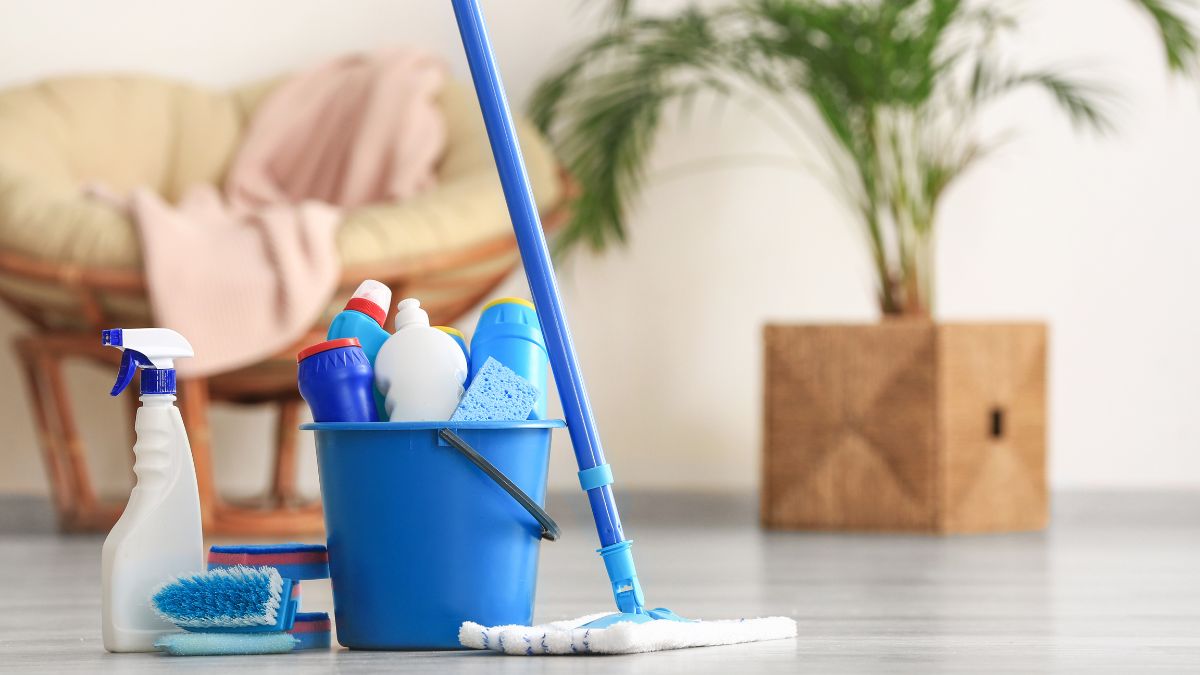
Starting a cleaning company is exciting, but choosing the right business structure can significantly impact your business's success. Each structure offers different advantages and drawbacks in terms of liability, taxation, and operational flexibility. In this guide, we'll walk you through the various business structures available in the UK, helping you make an informed decision that aligns with your goals and circumstances.
Understanding Business Structures
Before delving into specifics, it's essential to understand the different business structures you can choose from:
1. Sole Trader A sole trader is the simplest form of business structure, where you run your cleaning business as an individual. You're personally responsible for all aspects of the business, including finances and liabilities.
2. Partnership A partnership involves two or more individuals sharing ownership of the cleaning business. It allows for shared decision-making and resources but also comes with shared liabilities.
3. Limited Liability Partnership (LLP) An LLP offers a middle ground between partnerships and limited companies. It provides limited liability to its partners while allowing them to participate in management.
4. Limited Company (Ltd) A limited company is a distinct and different legal entity from its owners (shareholders). It offers limited liability protection to its shareholders and directors, which means personal assets are protected in case of business debts.
5. Franchise Operating your cleaning business as a franchise involves buying into an established brand and business model. While you benefit from brand recognition and support, you must operate within the franchisor's guidelines.
Sole Trader
Definition and Basic Characteristics - As a sole trader, you operate your cleaning business as an individual, with no legal distinction between the business and yourself. It's the most straightforward and cost-effective way to start a business.
Advantages
- Ease of Setup:Minimal legal formalities and lower startup costs.
- Direct Control: You have full control over business decisions and operations.
- Tax Simplicity: Easier tax reporting compared to other structures.
Disadvantages
- Unlimited Liability:You're personally liable for all business debts and legal obligations.
- Limited Growth Potential: Difficulty in raising capital compared to other structures.
- Risk of Burnout: Sole responsibility for all aspects of the business can lead to burnout.
Partnership
What Constitutes a Partnership in the Cleaning Business?
A partnership involves two or more individuals sharing ownership, responsibilities, and profits of a cleaning company. Partnerships can be general (equal responsibility and liability) or limited (one partner has limited liability).
Benefits
- Shared Responsibility: Decision-making and workload can be shared.
- Diverse Skills: Partners can bring complementary skills and expertise.
- Pooling Resources: Easier access to capital and resources compared to sole traders.
Considerations
- Shared Liability: Partners are jointly and severally liable for business debts and actions of other partners.
- Potential for Disputes: Differences in opinions and decision-making can lead to conflicts.
- Dependency: Dependency on partners for financial and operational decisions.
Limited Liability Partnership (LLP)
Features and Benefits
An LLP provides partners with limited liability protection, meaning their personal assets are safeguarded against business liabilities. It allows partners to participate in management without assuming full personal liability.
Considerations
- Legal Compliance: LLPs must adhere to specific legal requirements and filing obligations.
- Costs: Higher setup and administrative costs compared to sole traderships.
- Perception: Perception of LLPs may vary among clients and stakeholders compared to limited companies.
Limited Company (Ltd)
Overview and Suitability
A limited company is a separate legal entity from its owners, offering limited liability protection to its shareholders and directors. It's the most common structure for medium to large cleaning businesses due to its legal and financial advantages.
Responsibilities and Legal Aspects
- Corporate Governance: Directors must comply with company law and statutory regulations.
- Limited Liability: Shareholders' personal assets are protected in case of business debts.
- Tax Efficiency: Opportunities for tax planning and incentives for growth.
Franchise
Franchise Model for Cleaning Businesses Operating as a franchise allows you to leverage an established brand and business model. You purchase the rights to use the franchisor's brand, products, and operational methods in exchange for fees and royalties.
Advantages
- Brand Recognition: Access to a recognised brand name can attract customers.
- Training and Support: Franchisors often provide training, marketing support, and operational guidance.
- Proven Business Model: Reduced risk with a tested and proven business model.
Disadvantages
- Costs: Initial franchise fees, ongoing royalties, and marketing contributions can be substantial.
- Restrictions: Limited autonomy in business decisions and operations.
- Dependency: Dependence on the franchisor's reputation and success.
Factors Influencing Your Decision
When choosing a business structure for your cleaning company, consider the following factors:
- Legal Liability: How much personal risk are you willing to assume?
- Tax Implications: Which structure offers the most tax advantages for your business?
- Operational Control: How much control do you want over decision-making and
operations?
- Funding and Investment: What are the capital requirements and funding options available to your chosen structure?
- Administrative Responsibilities: What are the ongoing compliance and administrative requirements?
Steps to Choosing the Right Structure
- Evaluate Your Goals: Align the chosen structure with your long-term business objectives.
- Seek Professional Advice: Consult with legal and financial advisors who specialise in business structures.
- Consider Future Growth: Assess the scalability and flexibility of the chosen structure as your business grows.
Key Considerations for Maintenance and Compliance
- Ongoing Compliance: Ensure you understand and meet the legal and regulatory obligations of your chosen structure.
- Financial Management: Maintain accurate financial records and manage tax obligations effectively.
- Adaptability: Review and adapt your business structure as your business evolves and grows.
Conclusion
Choosing the right business structure for your cleaning company is a critical decision that impacts your legal standing, financial obligations, and operational flexibility. By understanding the pros and cons of each structure and evaluating your business needs, you can make an informed choice that sets your cleaning business on the path to success.
FAQ
Is there a minimum capital requirement for setting up a limited company (Ltd) for a cleaning business?
No, there is no specific minimum capital requirement to form a limited company (Ltd) in the UK. You can start with any amount of capital, even as low as £1.
Can a sole trader later change their business structure to a limited company?
Yes, a sole trader can transition to a limited company structure at any time. This process involves registering a new company and transferring business assets and operations accordingly.
What are the potential tax advantages of operating as a limited company (Ltd) compared to a sole trader?
Limited companies often benefit from lower tax rates on profits and more opportunities for tax planning, including allowances for business expenses and dividends.
Explore further business strategies by visiting How to Run a Cleaning Business.
© How to Run a Cleaning Business

 Log in with Facebook
Log in with Facebook 








